Table of Contents
ToggleTop 10 High Protein Foods
Protein is one of the most essential macronutrients and it is not only important for people aiming to build muscle, build strength or lose fat but also for ordinary people who want to maintain their general healthy lifestyle and body. 36 High Vitamin E Foods: Vitamin E Rich Fruits, Nuts, Oil And More
Many individuals find difficulty in meeting their daily protein requirement, especially if they are vegetarian. So, here is the list of “TOP 10 HIGH PROTEIN FOODS”, including both vegetarian and non-vegetarian options. Excited, let’s dive into it!
What is Lean Protein?
Lean protein is a type of protein which is low in saturated fats as a result it is low in calories. So, basically you get high protein at low calories. Moreover, it is considered much healthier than ‘non-lean protein sources’ due to low saturated fat content. Top 26 High Vitamin C Foods
Top 10 High Protein Foods
High Protein Foods for Non-vegetarians
Non-vegetarian foods are renowned for having “HIGH PROTEIN”. Not only that, they are immensely rich in “LEAN PROTEIN”, as a result people always aim to incorporate non-vegetarian foods in their diet, no matter whatever their fitness aim is.
1. Chicken
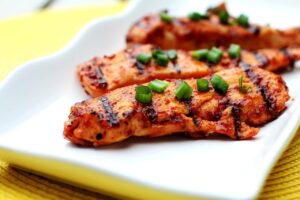
Chicken is a great source of ‘Lean protein’, not only that it is also rich in immunity-boosting vitamins like vitamin B6 and vitamin B12. It is also filled with various minerals like selenium, zinc and so on.
Chicken(100 gm) has an estimated amount of 240 kcal and 27 gm of protein.
NOTE:-People often have a misconception that only chicken breast should be consumed as it has a higher amount of protein as compared to other parts of chicken. “REALITY”-Chicken breasts actually have a higher protein level compared to other parts of chicken, but the difference is so negligible that it cannot bring any significant difference to your body in terms of muscle mass or strength levels. So, consuming other parts of chicken will also have the same effect as consuming its breast.
2. Red Meat
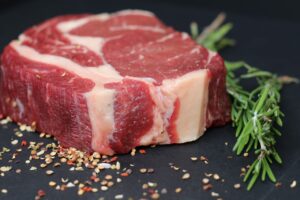
Red meat is a type of meat which is red in color in its raw form, whereas chicken is a form of white meat. Red meat contains beef, pork, goat, lamb/mutton, veal and venison.
1) Beef(100 gm) contains around 250 kcal and 26 gm of protein.
2) Pork(100 gm) has an estimated 240 kcal and 27 gm of protein.
3) Goat has around 145 kcal and 26 gm of protein.
4) Mutton is filled with around 300 kcal and 25 gm of protein.
5) Veal has an estimated level of 175 kcal and 24 gm of protein.
6) Venison has around 160 kcal and 30 gm of protein.
NOTE:-Red meat has been linked with various health risks like increased cholesterol levels, increased risk of heart diseases and cancer, etc. But limited intake of red meat will not cause any health issues, so consume it in limit.
3. Fish
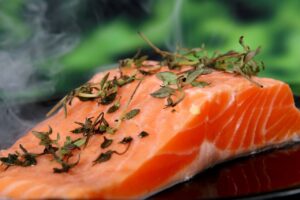
Fish is also another non-vegetarian option which is easy to consume because it is quite affordable and also does not make you feel heavy when you eat it.
Fish is packed with different vitamins like vitamin D, vitamin A and it is also filled with minerals like calcium, magnesium, etc.
Fish(100 gm) has a decent amount of 84 kcal and 17 gm of protein.
5 High Protein Fishes:
1) Tuna has an estimated calorie of 130 kcal and 28 gm protein.
2) Salmon has around 210 kcal and 20 gm protein.
3) Tilapia has an estimated calorie of 130 kcal and 26 gm protein.
4) Sea Food like prawn, lobster is filled with an estimated calories of 100 kcal and 20 gm protein.
5) Mackerel has an estimated calories of 300 kcal and 20 gm protein.
4. Eggs
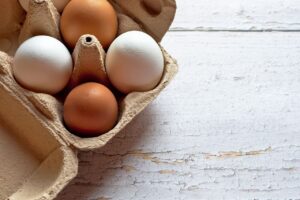
Eggs are one of the highly nutritious, affordable, easy to make and easily available protein sources.
Egg contains high amounts of vitamin A, vitamin D, vitamin E, vitamin k, vitamin B1, vitamin B2, vitamin B5, vitamin B6, vitamin B9 and vitamin B12. That’s a lot, isn’t it!
1 average-sized egg has an estimated level of 78 kcal and 5 gm of protein.
High Protein Foods for Vegetarian
The majority of the population have a misconception that as a vegetarian they have a limited number of protein-rich food sources. But in reality, there are so numerous and diverse amounts of foods that any individual can easily complete their protein requirement through it. Here is the list of few protein-rich vegetarian foods that are easily available, delicious, inexpensive and some of them can be even used by vegans as well. Interesting, isn’t it? 25 High Vitamin A Foods (Non-Vegetarian, Vegetarian And Vegan)
5. Soya Chunks
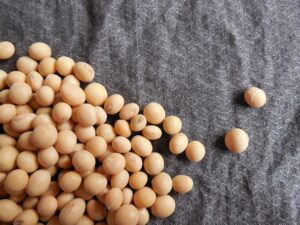
For vegetarians and vegans, one of the highest sources of protein is ‘Soya chunks’ and it has more protein than non-vegetarian foods. Yes, you heard it right! Soya chunks are made of soy and soy also acts as a main ingredient in making:
1) 1 portion or stick of Vegan/Mock meat(Chaap) has around 70 kcal and 10 gm protein.
2) Soy milk is filled with an estimated calories of 39 kcal and 2.5 gm protein.
3) Tofu has estimated calories of 76 kcal and 8 gm protein.
Soy is extremely rich in flavonoids, fiber, potassium, magnesium and B vitamins as well.
Soya chunks(100 gm) have somewhere around 345 kcal and are loaded with 52 gm of protein. Amazing, isn’t it?
6. Kidney Beans(Rajma)
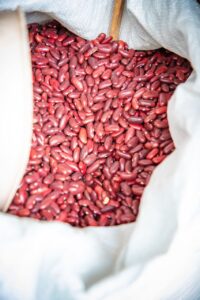
Kidney beans are also known as ‘Rajma’ and it is a staple food in the northern region of India. Kidney beans are immensely rich in molybdenum, copper, iron, manganese, phosphorus and vitamin B1.
Kidney beans(100 gm) have an estimated calorie of 330 kcal and 24 gm of protein.
7. Chickpea(Chole)
Chickpea also known as ‘Chole’ is one of the staple foods in northern and different other parts of India and is extremely nutritious. Chickpea is immensely rich in dietary fiber, vitamins like vitamin A and vitamin E, PUFA(Polyunsaturated Fatty Acids) and minerals like iron, magnesium, potassium and so on.
Chickpea is also processed and textured to make other nutritious foods like besan(Gram flour) and sattu(Roasted gram flour) which are extensively used in many varied regions of India.
Chickpea(100 gm) has an estimated calories of 364 kcal and 20 gm of protein.
BONUS:- (1) Gram flour(100 gm) has around 390 kcal and 22 gm of protein
(2) Roasted gram flour(100 gm) has an estimated calories of 395 kcal and 24 gm of protein.
8. Cottage Cheese(Paneer)
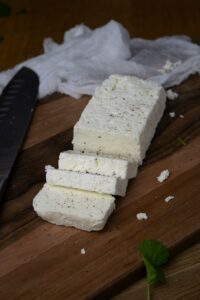
Cottage cheese also known as ‘Paneer’ is another great option to meet your daily protein requirement. Cottage cheese is made from milk and milk itself is a protein rich food that is why all the dairy products are so protein rich. Some of the dairy products are:
1) Milk(500 ml) has estimated calories of 220 kcal and 17 gm of protein.
2) Cheese has estimated calories of 400 kcal and 25 gm protein.
3) Buttermilk has estimated calories of 200 kcal and 15 gm protein.
4) Curd(100 gm) has estimated calories of 60 kcal and 4 gm protein.
Milk and all the dairy products are extremely rich in probiotics whose function is to keep your gut healthy. It also has fat-soluble vitamins like vitamin A, vitamin D and vitamin E and also has other essential vitamins like vitamin B and vitamin B2. Minerals like calcium which is immensely important for bone health, potassium, magnesium, zinc, iodine are also present in it.
Cottage cheese(100 gm) has around 320 kcal and 20 gm of protein.
9. Green Gram(Moong Dal)
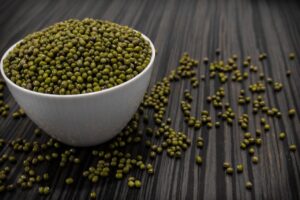
Out of all the lentils, green gram is one of the highest protein sources for vegetarians and vegans as well. Green gram is also known as ‘Mung beans’, ‘Green beans’ and ‘Moong dal’ in India.
You will be shocked to know its vitamins and minerals content. It consists of phytochemicals like folate, niacin, thiamine, pantothenic acid, riboflavin and vitamins like vitamin A, vitamin B6, vitamin B12, vitamin C, vitamin D, vitamin E and vitamin K. That’s a lot, isn’t it?
Green gram(100 gm) contains around 350 kcal and 24 gm protein.
BONUS:- If you do not have green gram, you can use ‘Black gram split(Urad dal)’ as an alternative. It has an estimated calories of 350 kcal and 24 gm protein.
10. Whey Protein
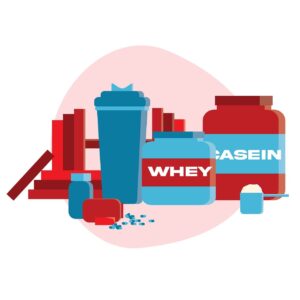
Whey protein is one of the highest and quickly-digesting sources of protein. It is one of the supplements which is safest to use and has been researched the most all across the globe. When your schedule is really hectic and you can prepare or have all your meals, then whey protein comes into play to complete your protein requirement.
The amount of calories and protein content in the whey protein varies according to which brand you are using. But a high quality protein powder has around 120 kcal and 20 gm of protein per serving(25 gm).
NOTE:- Whey protein can only be used as a supplement which means ‘additional to your diet’ not in ‘replacement to your diet’. Supplements can never ever replace whole foods because foods are rich in phytochemicals which supplements can never ever have. Supplements are processed to only have a specific nutrient but it cannot have the plan chemicals which is essential to have a healthy body in-and-out.
How much protein is needed per day?
The protein requirement varies from individual to individual and also depends on multiple factors like age, gender, level of physical activity, injury status, etc. On top of that, different researches and medical bodies have formed out different ideologies.
But on an average, most people require 0.8g-1.2g/per kg of bodyweight/per day amount of protein. So, if you are a 50 kg person, then you need around 40g-60g protein daily. This is not an ideal protein range but this is the minimum what you should have on a day-to-day basis for functioning.
How much protein is needed per day to build muscle?
Again as mentioned above, it depends on various factors, varies from person to person and different studies and medical bodies have different figures. But on an average, most people should not have more than 1.5g-2g/per kg of bodyweight/per day amount of protein. So, if you are a 50 kg person, then you need 75g-100g protein per day. Top 11 High Vitamin D Foods
Takeaway
There are numerous high protein food sources and they are highly nutritious on top of that. Incorporating them in one’s diet can easily help a person to meet their protein requirement. 5 Proven Health Benefits of Vitamin K: Dosage,Deficiency and More
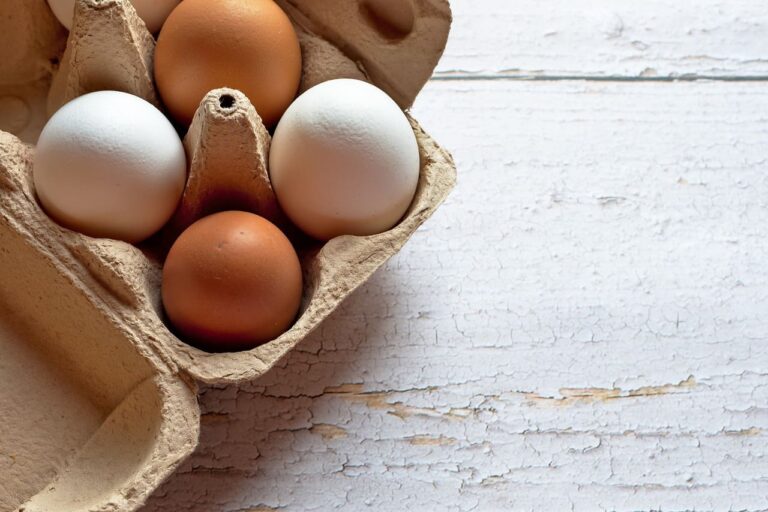
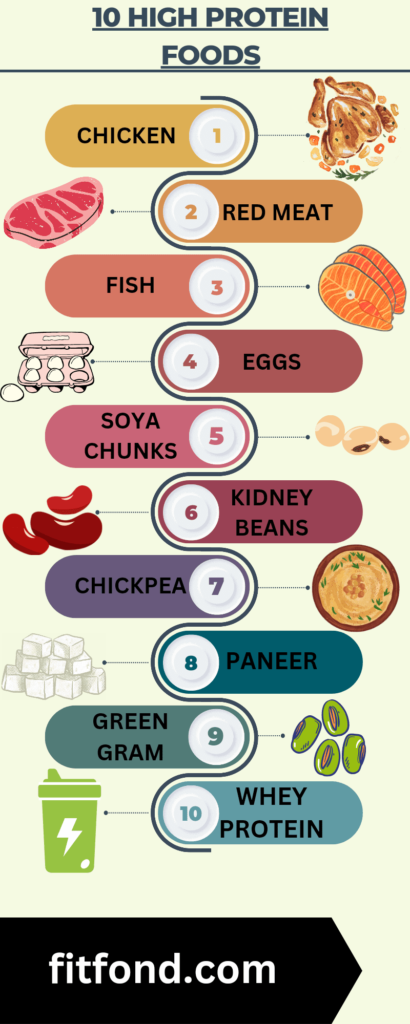
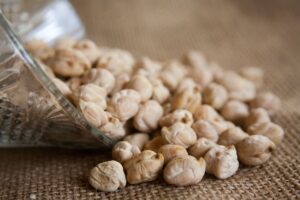
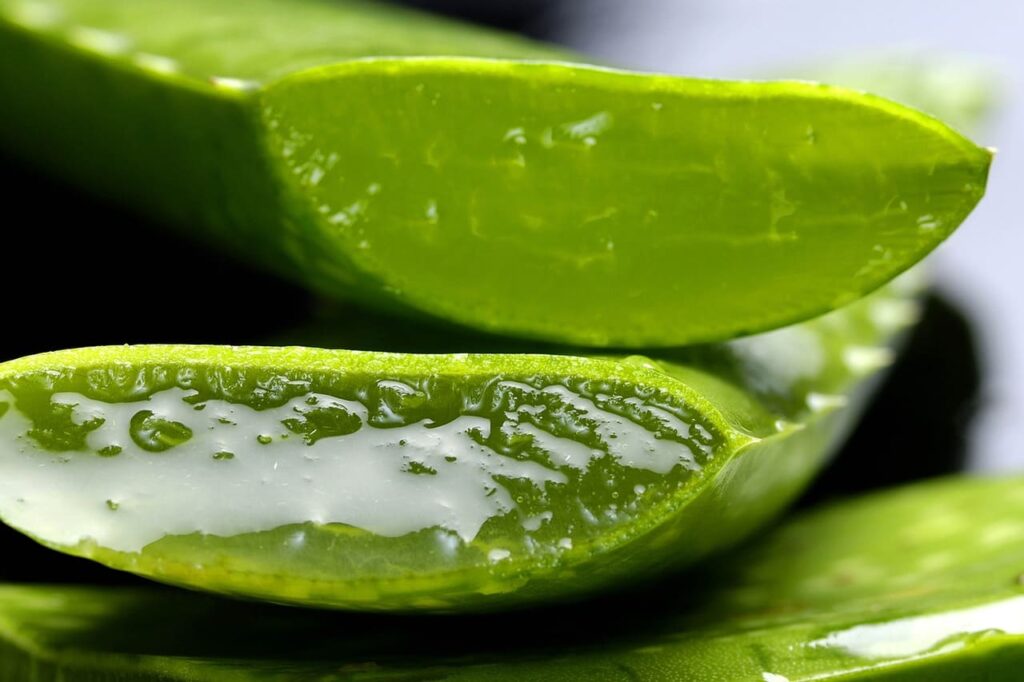
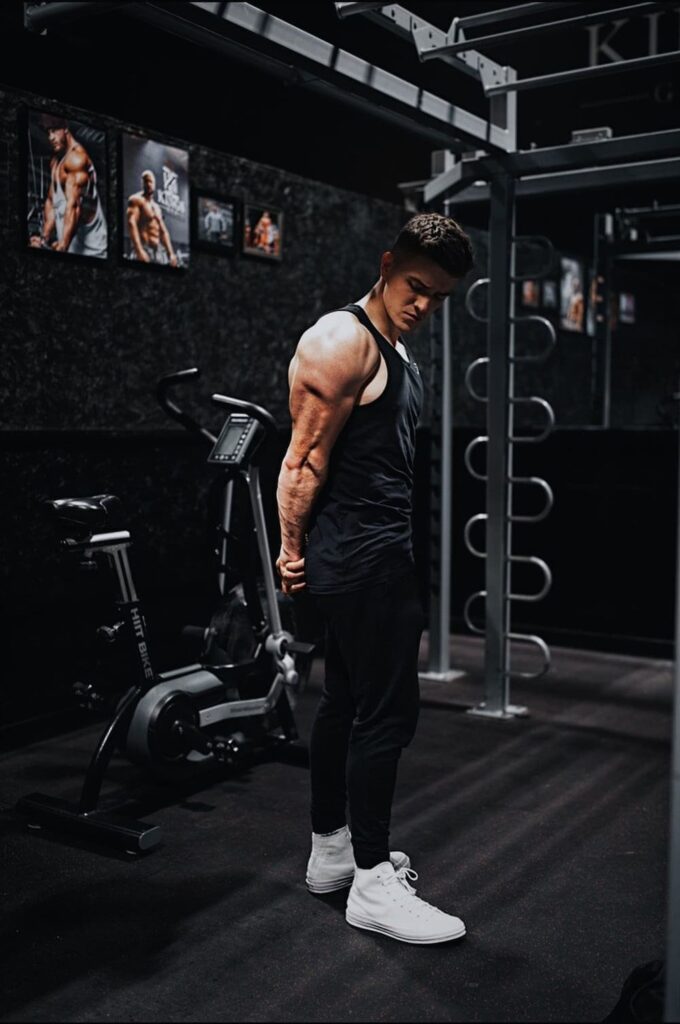
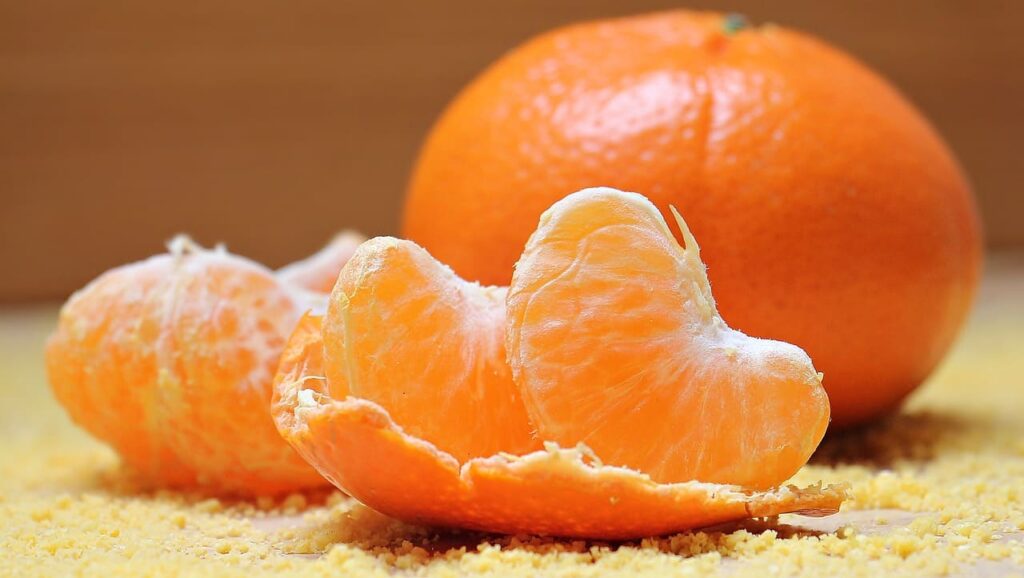
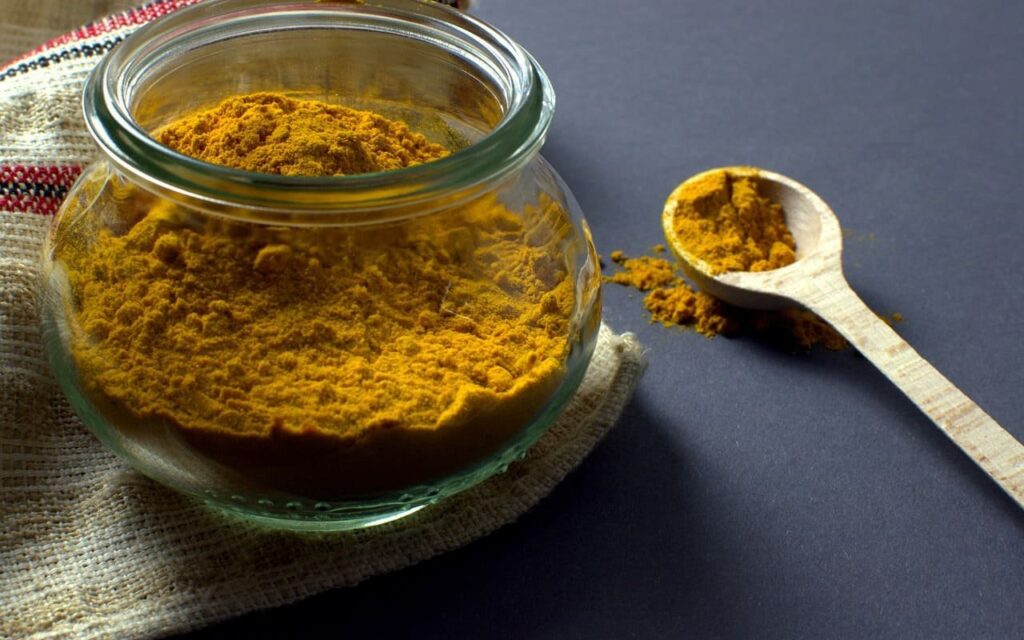

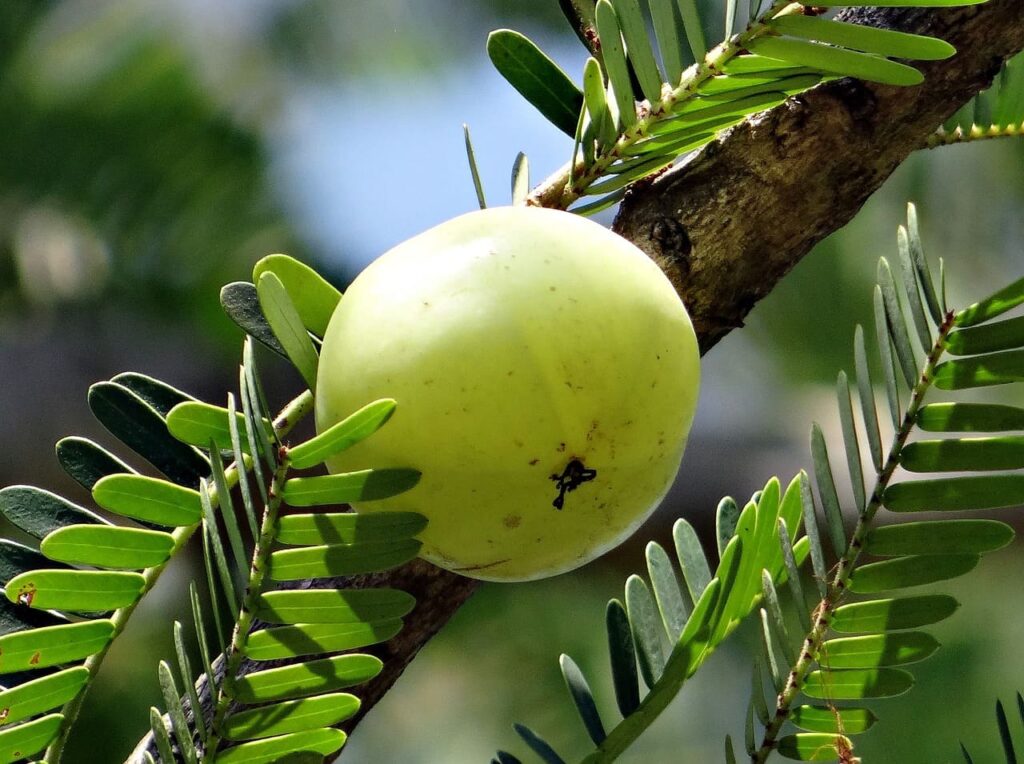
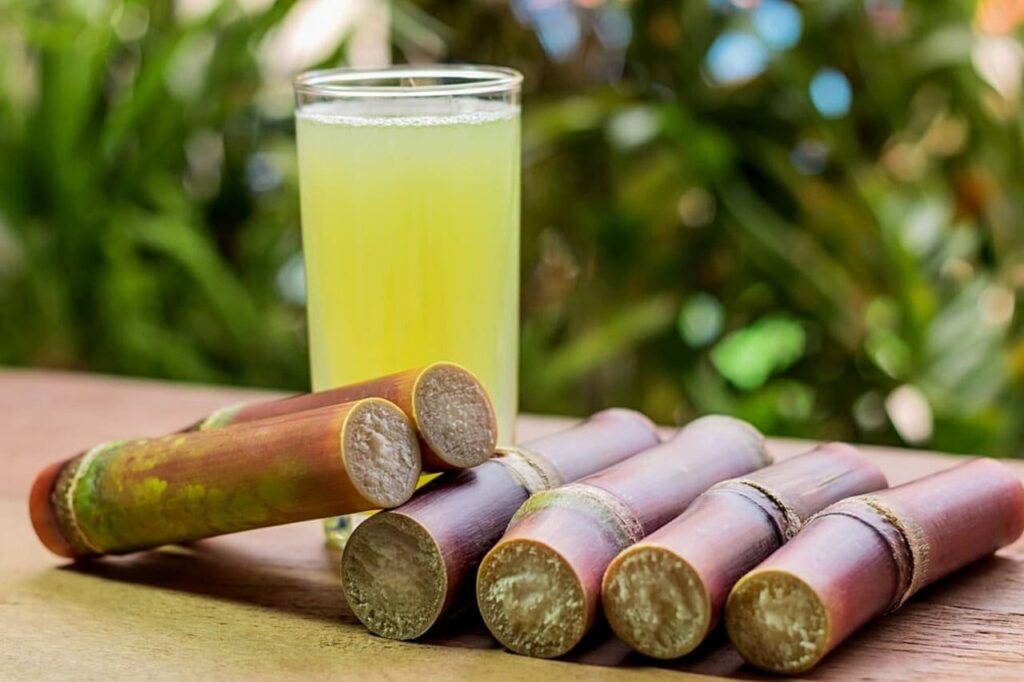

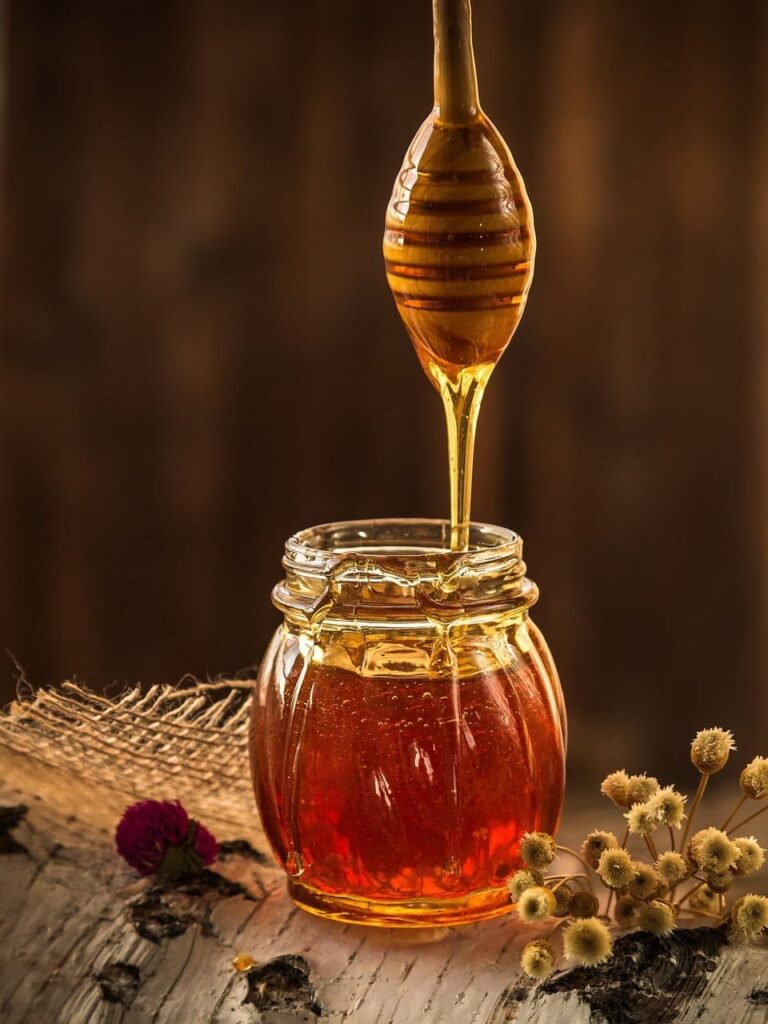
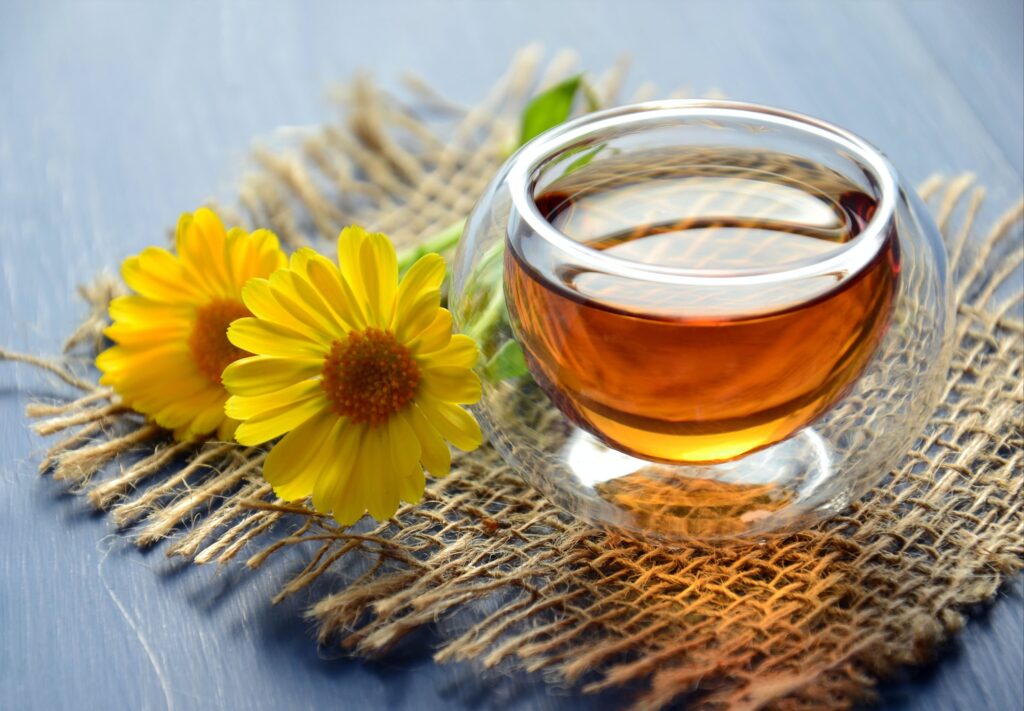
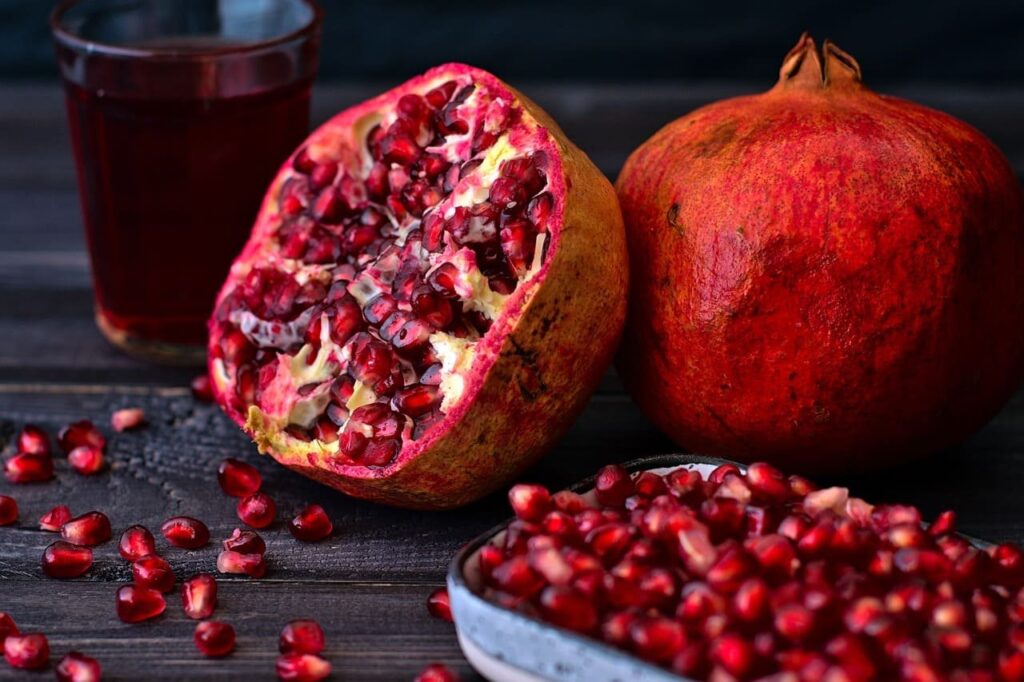


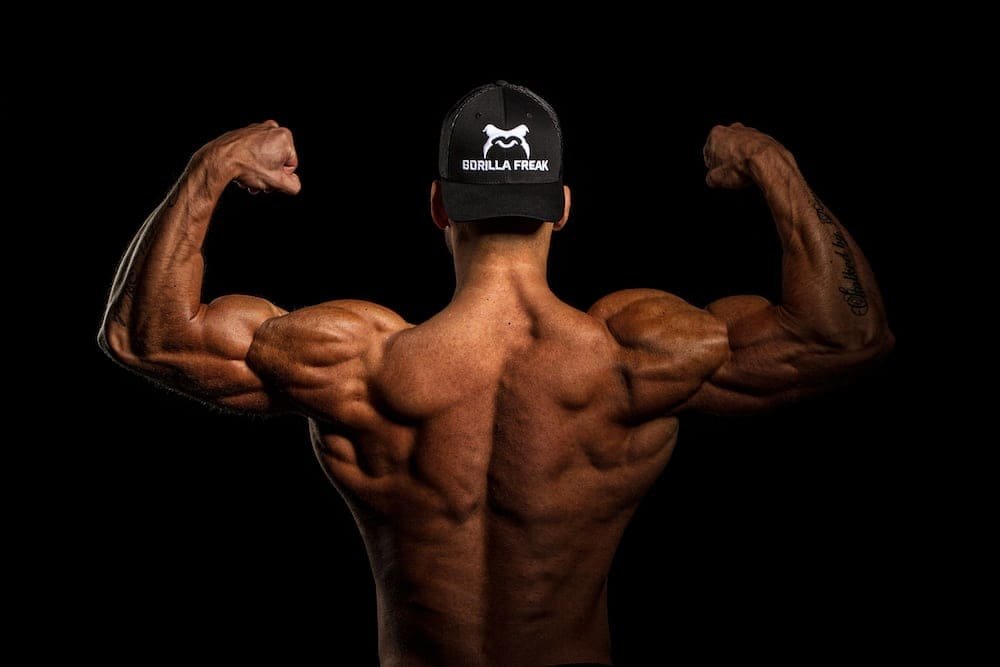
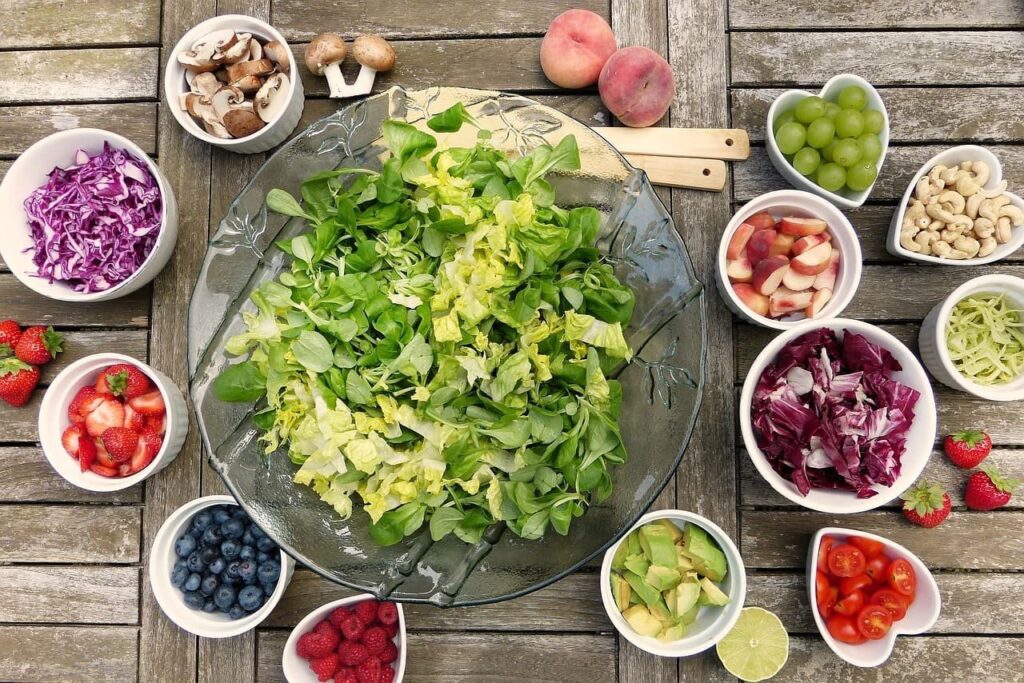
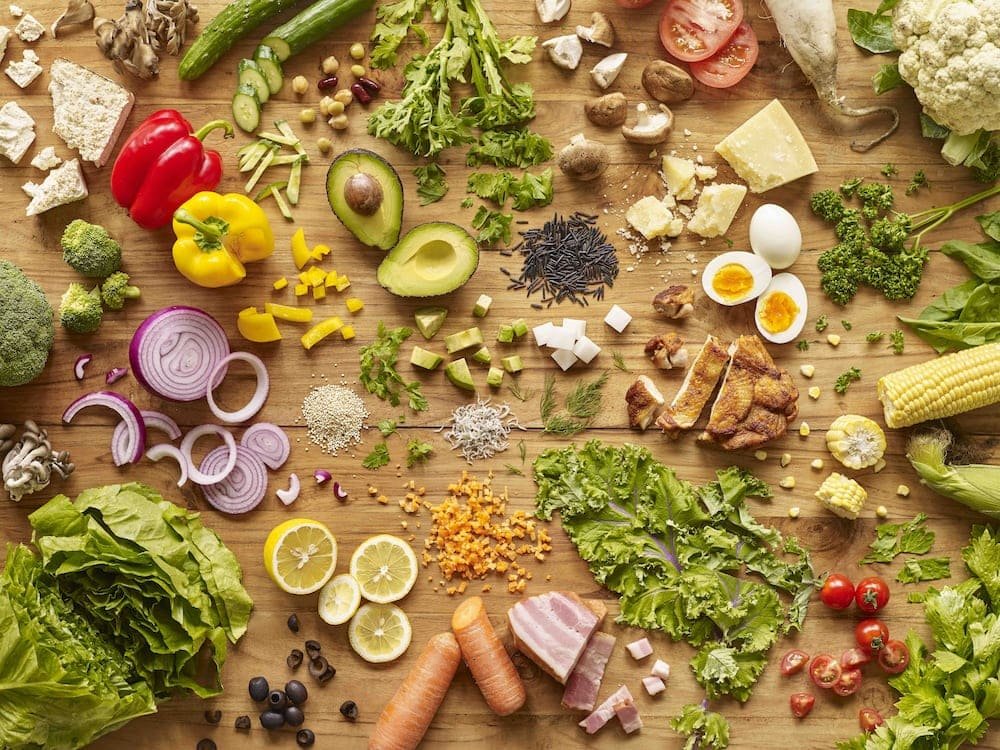
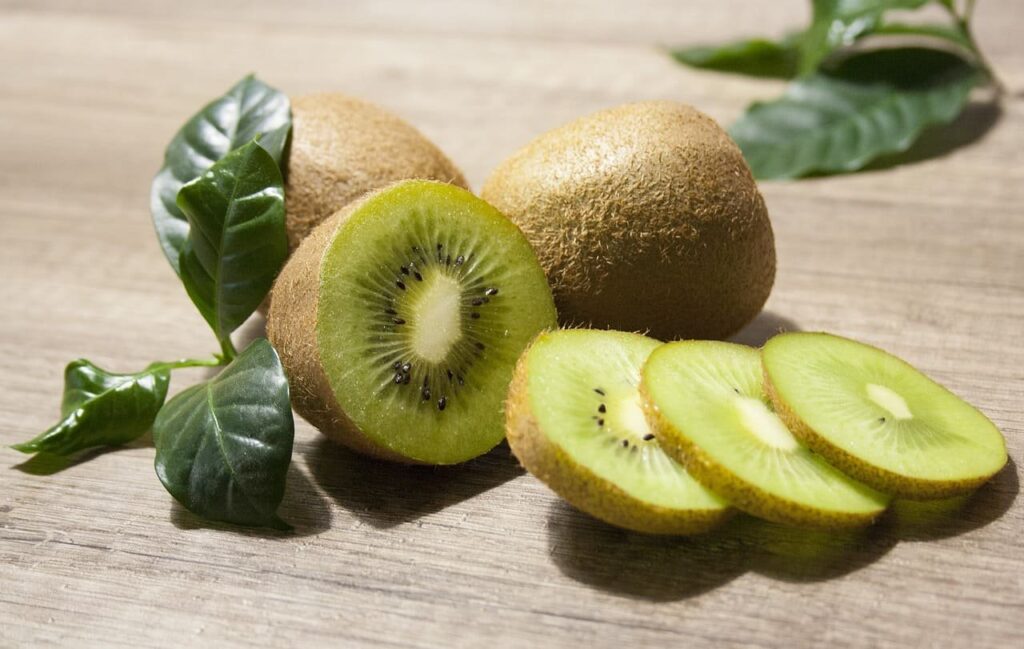
Very informative 😃
Thanks
Nice blog 👍
Thanks a lot
It’s really helpful for those who think only non vegetarian foods have High protein
Thanks for the appreciation!